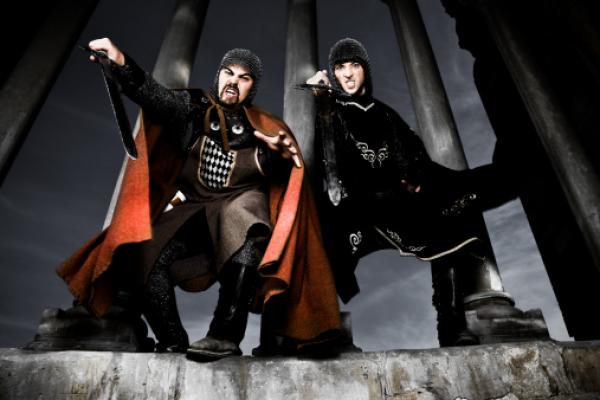The "Christocrats" are back. Not that they ever really went away.
When I wrote The Baptizing of America: The Religious Right's Plans for the Rest Of Us back in 2006, I warned about religious and political leaders — I called them "Christocrats" — who were actively seeking to impose their extreme beliefs and harsh policies on all Americans.
The Christocrats were then and remain now a small but determined group of ultraconservative Christians who are waging a systematic campaign to dominate and control every significant space within America society, from the bedroom to the schoolroom to the courtroom.
The Christocrats, I wrote, "would make the United States a legally mandated 'Christian nation' where their version of God's law supersedes all human law — including the Constitution."
At the time, some critics charged that I had "exaggerated" a nonexistent threat to our long-held American principle of church-state separation. One reviewer called the book a "paranoid rant."
One major focus was the radical doctrine of Christian Reconstructionism and its theological soul mate, Dominionism. Simply put, the goal of these two movements is to enforce a punitive religious dominion over all aspects of American life by infiltrating a major political party and by governing the nation's religious agenda.
At the time, before he became a columnist for The New York Times, Ross Douthat agreed that Christian Reconstructionists are "genuine theocrats, of a sort." But he also minimized their importance, saying they rank "low on the totem pole of political influence."
The Democratic sweep of Congress in 2006 and President Obama's election in 2008 convinced many people the religious right had been defeated and discredited. They believed it was time to "move on," a ubiquitous but dangerous phrase that often blinds people to unpleasant realities.
The truth, however, is that the religious right, Christian Reconstructionism and Dominionism have never gone away. And now they're back — "big time," as Dick Cheney might say.
In the 2012 presidential election, the Christocrats are out in force on many fronts: trying to eliminate prenatal care and all forms of contraception; defunding breast cancer screening; opposing civil rights for same-sex couples; contesting evolution and substituting creationism in public schools; denying the reality of global climate change; and discrediting the "lame stream media."
Even though the Constitution specifically prohibits a "religious test" for elective office, the GOP primaries are poisoned with scornful remarks about whether a candidate is "Christian" or not, or whether Obama's theology is "phony" or unbiblical.
Much of this takes the form of former Pennsylvania Sen. Rick Santorum, who has been proud to claim the mantle of the "Jesus candidate." But you can also see traces in the Gingrich and Romney campaigns, and from well-funded groups that aren't attached to a particular candidate.
I draw no joy in continuing to warn about the profound dangers of the religious right and its various allies. What I wrote in 2006, sadly, remains true today:
"A specter is haunting America, and it is not socialism and certainly not communism. It is the specter of Americans kneeling in submission to a particular interpretation of religion that has become an ideology, an all-encompassing way of life."
The intervening years have proven that my fears were not "exaggerated." I don't expect my critics to now publicly admit they were wrong.
I can only echo a recent president who in an entirely different context said: "Bring it on!"
Rabbi A. James Rudin, the American Jewish Committee's senior interreligious adviser, is the author of the recent book, Cushing, Spellman, O'Connor: The Surprising Story of How Three American Cardinals Transformed Catholic-Jewish Relations.
Got something to say about what you're reading? We value your feedback!
